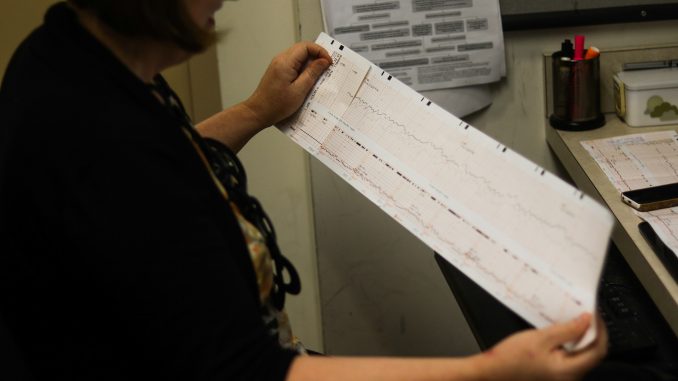
To combat the rising rates of opioid addiction in North Philadelphia and the lack of treatment facilities for pregnant women, doctors from Temple University Hospital are working to create a treatment program to address both issues at once.
Dr. Mary Morrison and Dr. Laura Goetzl are working together to ensure that pregnant women addicted to opioids get the best care possible. Goetzl and Morrison have teamed up with Dr. Laura Hart and the Wedge Recovery Center, a center for mental health and drug treatment, to create a caring environment for these women.
“Prior to this initiative there was only one program that treated pregnant women and that was the [Maternal Addition Treatment, Education and Research] program at Jefferson,” Goetzl said. “Now we have three coordinated efforts across the city for women to turn to.”
The Temple/Wedge Opioid Treatment Program will provide 300 women each year with prenatal care, mental health care, substance abuse treatment, pain management and drug testing.
The group received a state grant of $500,000.
“Because of the opioid epidemic, the state is looking to expand treatment,” Morrison said. “We put together a lot of parts that haven’t worked together to make it easier for the pregnant women to move on.”
The women can go to the Wedge Recovery Center at 2009 Broad St. for an evaluation by TUH and Wedge doctors. They will then see Morrison to evaluate their mental health needs and Hart for guidance about buprenorphine treatment in pregnancy. The patient then returns to their primary obstetric care provider with frequent visits to the Wedge treatment center.
The center will also take patients from West Philadelphia until another center opens there.
The women are part of a buprenorphine treatment plan which reduces withdrawal symptoms by simultaneously stimulating and blocking opioid receptors in the brain, Goetzl said. She added that it stabilizes the women emotionally and physically and steers them away from dangerous lifestyles that can be associated with drug addiction.
Goetzl said buprenorphine helps keep the mother and baby stable and, compared to methadone, reduces the chance of Neonatal Abstinence Syndrome, a problem that can occur when a baby is exposed to opioids while in the mother’s womb and then goes through withdrawal after birth.
There is also an anesthesiologist who specializes in pain treatment and will evaluate patients as outpatients for physical causes of pain that do not stem from opioid addiction symptoms.
“Our main goal is to get them through pregnancy, but we try to get them into a medical home, and they continue for treatment with Wedge after pregnancy,” Goetzl said.
The center will also try to keep families together and women safe by incorporating their families into treatment as well, so they can heal as a family, Goetzl said.
“Pregnancy is a great window to approach women about opioid use, they’re usually highly motivated [to enter treatment programs],” Goetzl said, adding that overdose deaths are “especially tragic in pregnancy.”
Megan Milligan can be reached at megan.milligan@temple.edu.
CORRECTION: A previous version of this article misspelled Dr. Laura Goetzl’s name. This has been corrected. This article has also been edited for clarity regarding the function and results of buprenorphine, the services provided by Dr. Mary Morrison and Dr. Laura Hart and the anesthesiologist at the Wedge Center.


Be the first to comment